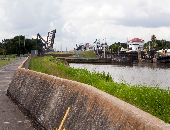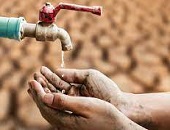Diversifying Wildfire Risk
Climate change is altering risk profiles the world over. In the US, it has led to an increase in wildfire season length, wildfire frequency, and the size of burned area. When it comes to such disasters, is the economic risk only borne by those in the risky area, or can the economic risk be shared among investors? A recent webinar looked at a longstanding tool for financial adaptation. For nearly a century, mortgages have been used to create mortgage-backed securities (MBSs) in order to share the risk (and thus the return) of financing real estate. “What are the benefits of […]
California Perspective
Imagine feeling shut out from important decisions in your community. Imagine feeling you were always the last choice when it came to hiring for the good jobs. If social studies showed this was always due to systemic bias, wouldn’t you want to work for change—if not for yourself, at least for the generation to come? This is the motivation behind the movement for diversity, equity, and inclusion (DEI). What are the fundamental principles to accelerate change around DEI? Can financial institutions adapt to DEI—and can their regulatory body, CFA Institute, lead the way? To showcase thriving financial institutions that have […]
Resilient earth?
As 2023 draws to a close, we see increasingly severe climate outcomes around the world—from rising emissions to severe weather events, to increased food and water inequality. Three days before the United Nations Climate Change Conference COP 28 began, a multidisciplinary research organization welcomed scientific panellists to a webinar for an audience of hundreds on November 27, 2023, titled “Nurturing a Resilient Earth.” The virtual event, sponsored by CIFAR (Canadian Institute for Advanced Research), convened an interdisciplinary panel of four top researchers. The discussion was moderated by Stephen Toope, President & CEO of CIFAR, and the author most recently of A […]
Flood Economics
When it comes to natural disasters such as flooding, does it make more economic sense to control the flood? Or to sit back, suffer the consequences, and count on insurance? Climate change leads to more frequent and more intense flooding. As these risks intensify, public funds will often be used to protect communities. Recent work done by economists estimates the amount and distribution of benefits from a major form of public flood risk adaptation, flood control levees. A levee is an embankment built to prevent the overflow of a river. The efficiency and equity implications of levees were investigated by […]
Managing Water Risk
Flooding, drought, and the polluted quality of water pose a business risk to the agricultural sector, which affects everything from geopolitical risk to inflation. What is the cause of water risk, and how can it be mitigated? On October 3, 2023, Catherine David, Director of Collaboration and Change at Waste and Resources Action Programme (WRAP) and a specialist in water risk, spoke about water management designed for sustainability. The webinar was sponsored by the Global Association of Risk Professionals (GARP) and was moderated by Jo Paisley, President, GARP Risk Institute. “According to the FAO,” David said, “by 2030, global demand for […]
The Future of Work
Now that the Covid-19 pandemic fears are receding, what is happening to the average workplace—will it become more or less virtual? Will some workers prefer to continue working from home and refuse to commute? As for generative AI—how will that change the future of work? “There will always be work to do, but it will be different from the work we know now,” said Mary C. Daly, President and CEO of the U.S. Federal Reserve Bank of San Francisco (FRBSF), known informally as “the Fed.” She was the introductory speaker on September 8, 2023, at a presentation outlining the Fed’s […]
The Greenium
Does the average household want to invest in climate-friendly assets? If so, what proportion of assets are earmarked for green investments? What kinds of assets (equity or fixed income) are preferred? “Green investments are popular, but only about one-third of German households have some kind of green account,” said Monika Piazzesi, Professor of Economics at Stanford University. She was speaking at a webinar titled “Household Climate Finance: Theory and Survey Data on Safe and Risky Green Assets,” held on September 7, 2023, as part of the Virtual Seminar on Climate Economics sponsored by the Federal Reserve Bank of San Francisco (FRBSF). Her […]
Heat Lowers the GDP
Every season, but particularly summer, reminds us that global warming is occurring at an alarming rate. The average global temperature will continue to rise over time if people do not take substantial action to reduce greenhouse gases, especially carbon emissions. What effect will soaring temperatures have on economic productivity? How will warming effects be distributed over the globe? Will these have a long-lasting effect on the GDP? Recent research by economists at the Federal Reserve Bank of San Francisco (FRBSF) delves into these questions. “Our findings show that total global losses in output per person could be substantial,” say the […]
Carbon Pricing
What is the best way to address climate change? If too much carbon is released in the air, how can emissions be reduced? By regulating corporations or by imposing costs on consumers in the form of a carbon tax? Moreover, even if a solution is found, not all nations, and not all people within nations, will agree on how to tackle the problem. In the words of Professor Barry Rabe, author of Can We Price Carbon? “Compelling ideas from economics do not necessarily suspend the laws of politics.” On May 4, 2023, Jessica Green, professor of political science at University […]










